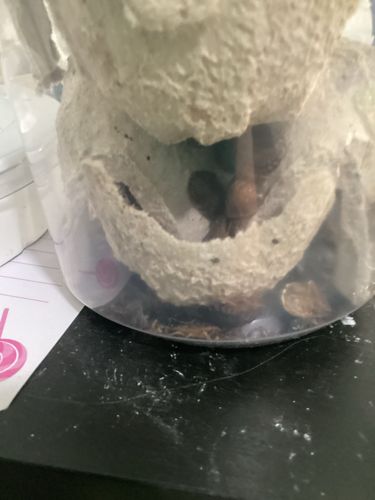Mealworm (Darkling Beetle larvae)
Scientific Name: Tenebrio molitor (larva)
Order & Family: Coleoptera, Tenebrionidae
Size: Larvae typically measure 2-3 cm (0.8-1.2 inches) in length.

Natural Habitat
Found in dark, damp places rich in decaying organic matter, such as under logs, in stored grains, flour mills, and animal feed.
Diet & Feeding
Primarily detritivores, feeding on decaying plant material, grains, flour, bread, and other stored food products. They can also consume some plastics like polystyrene.
Behavior Patterns
Larvae are nocturnal and prefer dark environments. They undergo complete metamorphosis, passing through egg, larval, pupal, and adult stages. The larval stage is long-lived, lasting several months. They are often kept and bred in captivity as live food for pets.
Risks & Benefits
Generally beneficial as decomposers and a food source for other animals (pets, wild birds, reptiles). They are also being researched for their ability to break down plastic waste. Potential risks include being a pest in stored food products if infestations occur, and some individuals might have allergic reactions to their dust or excretions.
Identified on: 9/7/2025